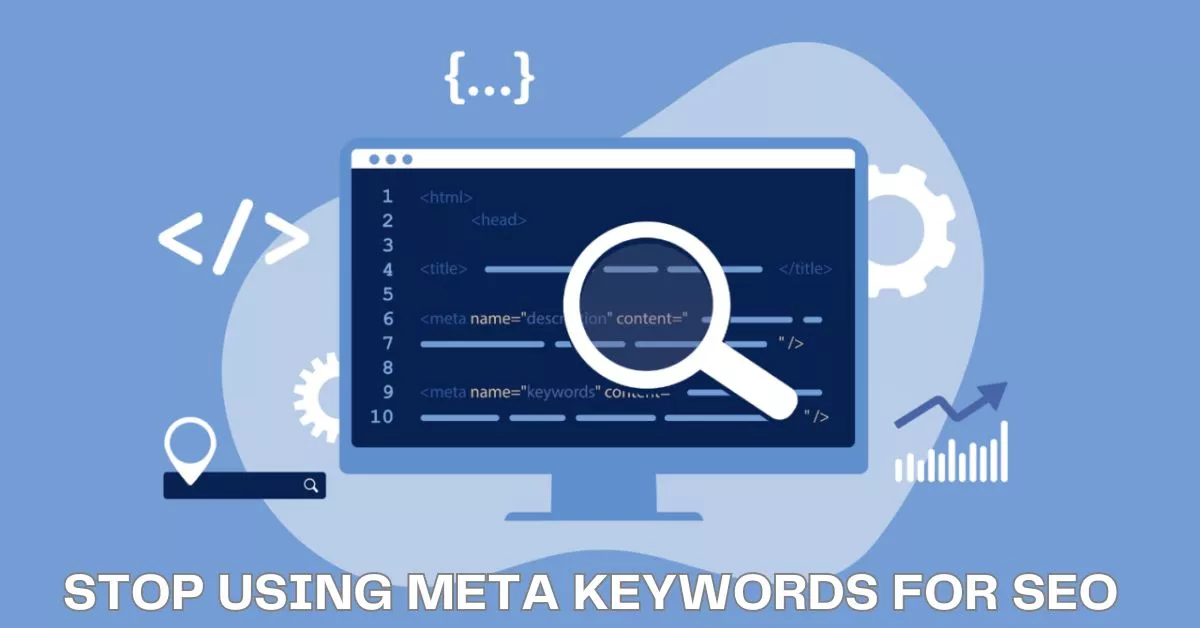Absolutely, using meta keywords for SEO has become an outdated practice in the digital landscape. Let’s explore why it’s time to move away from this approach and focus on more effective SEO strategies.

The Irrelevance of Meta Keywords:
1. Search Engines’ Evolving Algorithms:
Search engines like Google have evolved significantly, and their algorithms have become more sophisticated. They no longer rely on meta keywords to determine the relevance of content. Instead, they prioritize content quality, relevance, and user experience.
2. Overlooked by Search Engines:
Most major search engines, including Google, have openly stated that they no longer consider meta keywords as a ranking factor. They do not use them to index or rank web pages, rendering them ineffective for SEO purposes.
3. Keyword Stuffing Risks:
Overemphasis on meta keywords could lead to keyword stuffing—a practice frowned upon by search engines. Excessive use of keywords, especially in meta tags, can result in penalties or a negative impact on a website’s ranking.
4. Focus on Content Quality:
Modern SEO strategies emphasize high-quality content, user intent, relevance, and engagement. Rather than relying on meta keywords, focusing on informative, valuable, and user-centric content is more beneficial for SEO success.
5. User Experience and Accessibility:
Prioritizing user experience, mobile-friendliness, page speed, and structured data markup are more impactful SEO practices than meta keywords. These elements contribute significantly to a website’s overall ranking and user satisfaction.
6. Shift to Semantic Search: Search engines now use semantic search to understand user queries better. They focus on understanding the intent behind the search rather than matching exact keywords, making meta keywords less relevant.
Effective Alternatives:
1. Quality Content Creation:
Crafting high-quality, relevant, and engaging content that addresses users’ needs and queries is paramount for SEO success.
2. Optimize Meta Descriptions and Title Tags:
While meta keywords are no longer impactful, optimizing meta descriptions and title tags with relevant, descriptive content remains crucial for enticing users to click through to your website.
3. Focus on Long-Tail Keywords:
Embrace long-tail keywords that align with user intent. These specific phrases often have less competition and can cater to niche audiences effectively.
4. User-Centric SEO Strategies:
User experience, mobile optimization, site speed, and structured data markup are critical components that influence rankings and user satisfaction.

Conclusion:
In today’s SEO landscape, meta keywords hold minimal to no relevance in influencing search engine rankings. To achieve successful SEO outcomes, prioritize user-centric content strategies, improve website usability, and focus on optimizing other aspects that genuinely impact user experience and search engine visibility. It’s time to let go of outdated practices and embrace modern SEO techniques for improved website performance and visibility.










